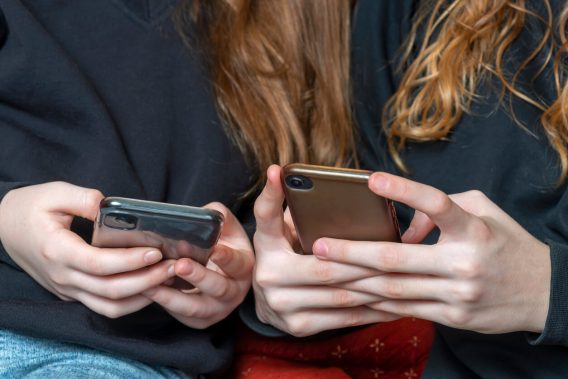New Jersey Will Use New Commission to Study Social Media Harm
Editors carefully fact-check all Drugwatch.com content for accuracy and quality.
Drugwatch.com has a stringent fact-checking process. It starts with our strict sourcing guidelines.
We only gather information from credible sources. This includes peer-reviewed medical journals, reputable media outlets, government reports, court records and interviews with qualified experts.

Growing concerns over the safety of social media use by children and teenagers has led to a new commission in New Jersey that will study the impact the platforms have on adolescents.
The state’s effort is named the Commission on the Effects of Social Media Usage on Adolescents. The legislation was signed by New Jersey Gov. Phil Murphy in July.
This new commission will study how social media use has affected:
- Academic performance of students
- Emotional and mental health of students, including incidents of depression, anxiety, body dysmorphia, harassment, intimidation/bullying or other disruptive behaviors
- Physical health of students, including incidents of sleep deprivation, weight loss or gain, or high blood pressure
The commission will also investigate the extent of social media usage both in and out of public schools, including the average amount of time students in various age groups spend each day on electronic devices.
“Social media can be a great way to connect with friends and family, but it can also be a source of stress and anxiety,” said state Sen. Richard Codey, one of the legislation’s sponsors. “This commission will help us understand the risks and benefits of social media so that we can help our kids use it safely.”
Commission Includes Experts, Parents
There will be 19 members on the newly formed commission, with 14 people appointed by the governor, four public members appointed by legislative leaders, and the commissioner of education. They will have an entire year to study the effects of social media on children and teenagers and will then report their findings.
The commission must include a school nurse, an expert in social media data analysis, representatives from education, psychology and child advocacy organizations, two parents of public school students and two public school students.
This isn’t the first time the state addressed the issue of social media harm. The Murphy administration’s health standards, released in 2020, include legal, safe and respectful use of social media in middle and high schools. The list also places an emphasis on safety from sexting and sextortion.
Past Attempts to Address the Issue
Nearly a decade ago, in January 2014, New Jersey also passed a law requiring the department of education to issue guidelines to middle school students about some of the dangers of social media.
Topics included:
- Cyberbullying
- Cyber ethics
- Cyber safety
- Cybersecurity
- Potential negative consequences of social media
- Social media behavior
The guidelines were issued before TikTok was created and when Facebook, YouTube and Instagram were the most popular social media platforms.
Warnings and Recommendations
The New Jersey legislation comes after several recent alerts from officials about social media harm and children. In May 2023, Surgeon General Vivek Murthy released a 25-page report warning that social media may not be safe for children and teenagers. The advisory also asked tech companies, parents and guardians to take immediate action.
That same month, the American Psychological Association released a health advisory about social media. It found the platforms to be neither beneficial nor harmful to young people, but suggested parents and caregivers play a bigger role when it comes to keeping children safe online. It recommended ideas such as setting time limits on social media use for kids and acknowledging the warning signs of problematic use.
In June 2023, the American Federation of Teachers, joined by other advocate groups, released its own report pinpointing social media as a cause of the ongoing nationwide mental health crisis among American youth. The report mentions an increase in concerning behavior by children according to school districts across the country.
So far, nearly 200 school districts have sued social media platforms for alleged harm to children, according to The Wall Street Journal.


